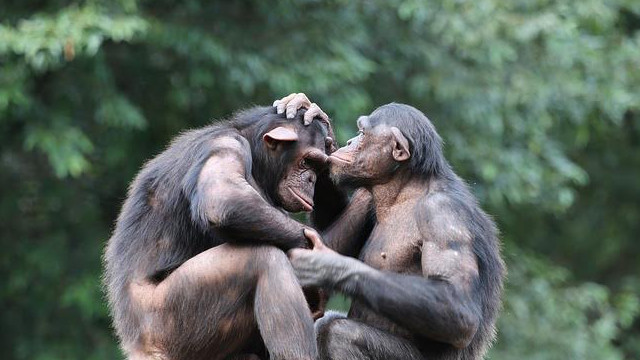 PIXABAY, JOELFOTOSNo chimp is an island. According to a November 2 study published in Nature Communications, chimpanzees exhibit fewer signs of stress when they are surrounded by “bond partners”—individuals with whom they share a strong social relationship—even when facing dangerous or otherwise stressful scenarios.
PIXABAY, JOELFOTOSNo chimp is an island. According to a November 2 study published in Nature Communications, chimpanzees exhibit fewer signs of stress when they are surrounded by “bond partners”—individuals with whom they share a strong social relationship—even when facing dangerous or otherwise stressful scenarios.
“We believe humans are very special because they can have these interesting relationships between each other that last over the years,” study coauthor Roman Wittig, a primatologist at the Max Planck Institute for Evolutionary Biology in Leipzig, Germany, told The Christian Science Monitor. “The feeling of good friendship, of strong bonds is something that chimpanzees can feel, too.”
While experts still debate whether non-human animals can display true empathy, seemingly altruistic behavior is well-documented in chimpanzees. One prior study even found that chimpanzees are capable of comforting their bond partners, and displaying as much apparent empathy as human children.
But this latest study adds physiological data to prior observations. Wittig and colleagues observed the stress levels of 17 chimpanzees in their natural habitats by measuring ...




















